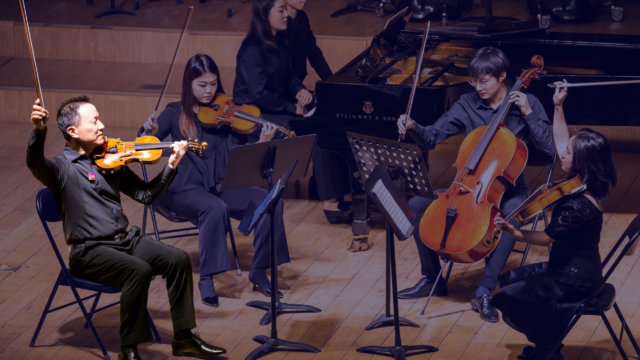Power of Inclusion – Capital City Symphony: A Community of Choice

In 2005, the Georgetown Symphony Orchestra’s Music Director Victoria Gau powerfully demonstrated her community orchestra’s devotion to creating inclusive space both onstage and in the community. The orchestra became a founding partner of the Atlas Performing Arts Center, in northeast Washington, D.C. At the same time, the orchestra was renamed Capital City Symphony to reflect its citywide mission to serve neighborhoods with less access to the performing arts. Atlas is located along the H Street corridor that was a center of Black commerce until its devastation in the riots that followed Martin Luther King’s assassination in 1968. Atlas (named for an iconic movie theatre at its core) has been key to the revitalization of the neighborhood.
Gau enthuses about buy-in to the values of the organization among musicians (volunteers who pay dues on a sliding scale). Musicians can see the organization’s values in its programming—in diverse repertoire, in free tickets for youth, in family shows. Gau describes it as “a community of choice, not of income. Many people who audition for us are idealistic young people.” These idealists are invited to help shape the orchestra’s strategic plan in orchestra-wide town halls.
A telling sign of musicians’ devotion to the orchestra is that it provides social bonds in the transience of Washington; musicians may leave for four years, but when they return to D.C., they return to the orchestra. Contributing to that is an understanding of their needs. “Our artistic goal is a performance beyond what the musicians expect, and we don’t get there by badgering people who have already worked 50 hours this week.”
In building a culture of discussion, freedom, and teamwork, Gau credits her longtime board chair Alex Swartsel, herself a consultant on employment matters. “She is an absolute dream for setting up an organizational culture where people want to be heard.” Two elected orchestra representatives serve on the board to keep lines of communication open. And Gau has a strong leadership partner in Executive Director Genevieve McGahey.
When interpersonal issues arise, Gau and McGahey stress dealing with it directly, and with empathy. “People are human,” McGahey reminds us, “and we believe in giving each other the benefit of the doubt.” Issues like workplace safety can be hard for a small nonprofit to deal with, she says, “but having inclusive principles at the core makes it so much easier to work and have a thriving arts organization.”
Photo: A culture of discussion, freedom, and teamwork, led by Music Director Victoria Gau in collaboration with board and executive leadership. Photo courtesy of Capital City Symphony.
Related
-
Learn | Equity, Diversity & Inclusion
Strategic Social Media for Today’s Orchestras
-
Learn | Equity, Diversity & Inclusion
Discover the Power of Inclusion in Orchestra Culture
-
Learn | Equity, Diversity & Inclusion Member-only Content
Discover the Power of Inclusion in Orchestra Culture
Become a member
Thank you for your interest in the League of American Orchestras! We are dedicated to advancing the orchestral experience for all.
Join Now
